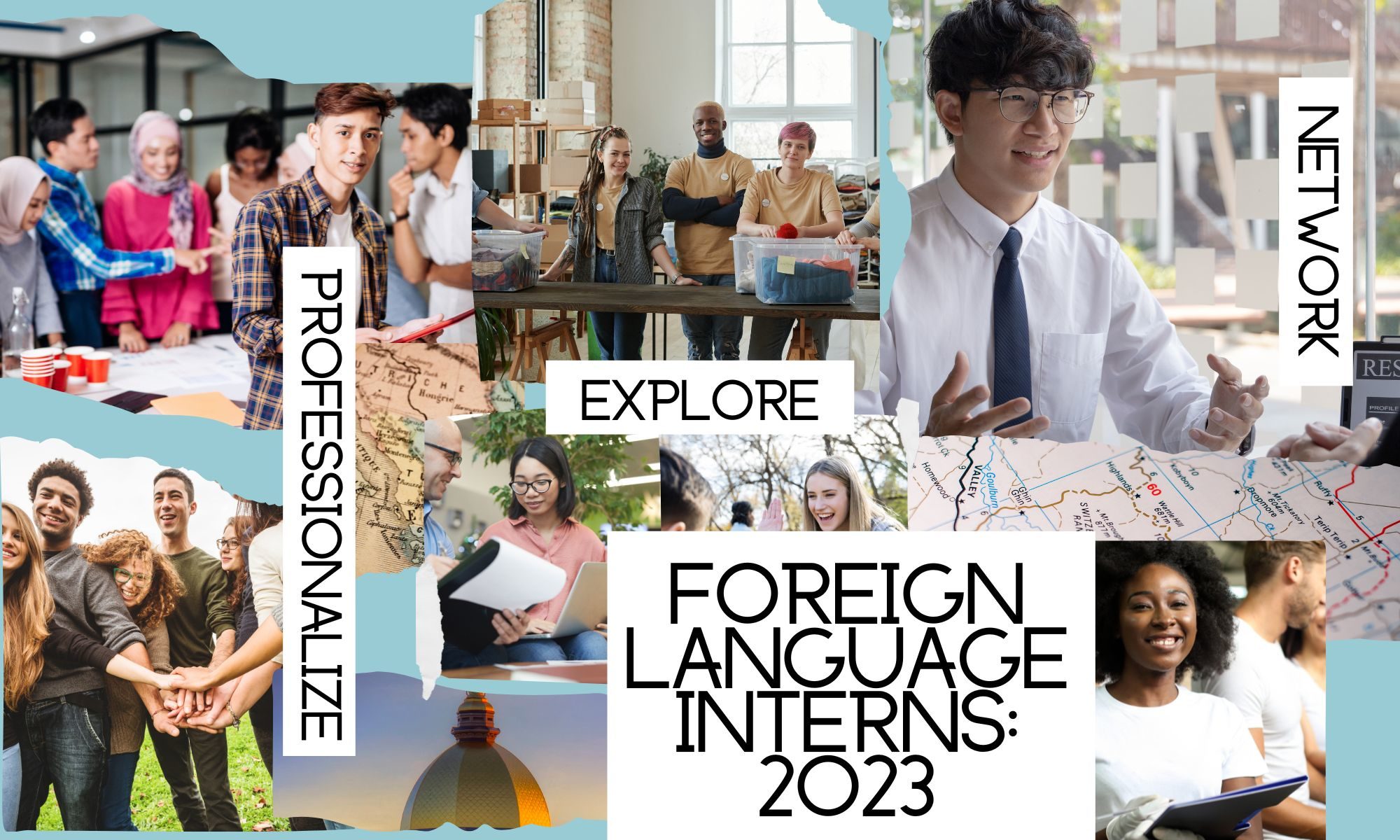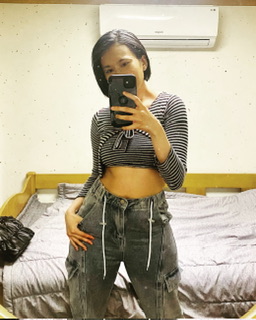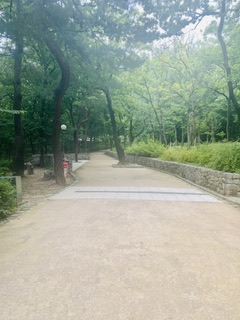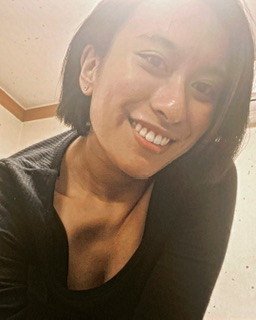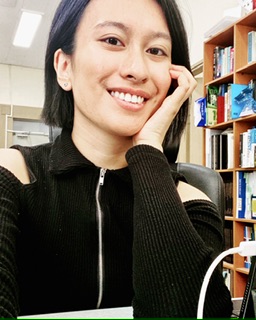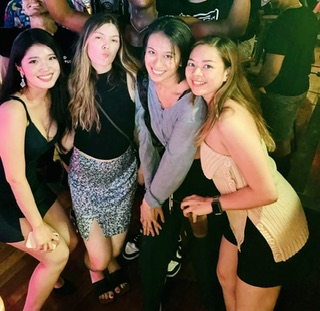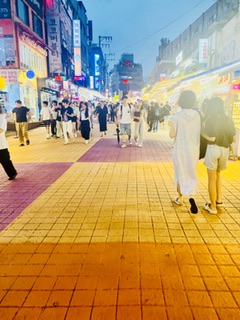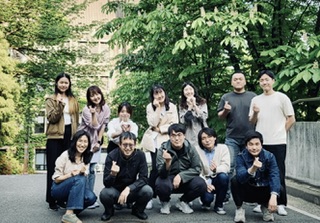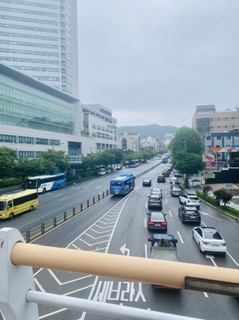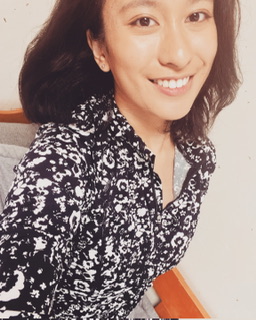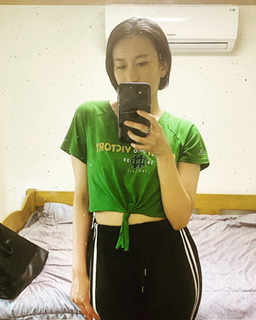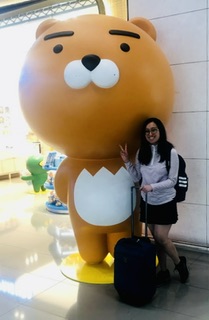“인생은 모험이다.” (“Life is an adventure.”)
Well, I am back America after one of the greatest adventures of my life, but I think one thing that I hope to remember after all of this is that this is just the beginning of my biggest adventure of all. “인생은 모험이다,” or “Life is an adventure,” so it is my goal to make the most of every moment of it, while taking all the lessons and the growth from all of my past adventures to make each new one even better… I am getting ahead of myself, though. Since I have been sharing some Korean songs throughout my time in Korea, now that I am back in the States, I think it is fitting for me to share an American song that is on theme with the post. So, without further ado, I hope you all enjoy one more song that my brother had shared with me in the past and that I believe to be rather fitting for what I will be covering in this final blog post: “Figure Me Out” by “The Summer Set.”
So, as I have alluded to with my recent song choice, this post will be all about wrapping up my experience abroad by discussing how, exactly, it has affected me and by setting the rest of the foundations for how I will move forward into the long and daunting future of figuring myself out. I believe that I mentioned in my first blog post that this summer internship actually marks the start of my senior year at the University of Notre Dame. In a romantically poetic way, my story in Seoul started the end of my Notre Dame experience. While I still am fully against overly-idealizing things, I believe everything in my life seems to have lined up way too well when it comes to my once-in-a-lifetime opportunity in Korea. I will forever be grateful for every aspect of my time abroad during this foreign language internship, and I am sure that I will always hold the memories of my time in South Korea in my heart as highlights for the rest of my life.
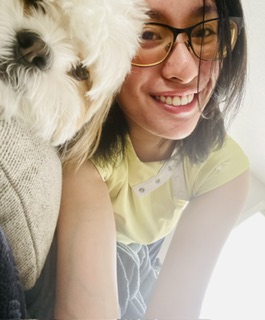
Firstly, I would like to revisit my first post, where I wrote about my goals for this incredible internship experience. In order to provide a quick recap, one of my goals was to set up a basis for my own cultural identity, and my other goal was to better understand how my personal cultures are interrelated with the Korean culture as I learn to interact with the community. As a general, overarching goal, I had the hope and great expectation that this summer I would help to start myself off on the long and winding road to “figuring myself out,” hence my final song choice. It would not be an understatement to say that my expectations in this area were greatly exceeded, but I am pretty sure that it happened in the most unexpected ways imaginable. After all, not everything on this trip could be considered a success. Because of everything, both the successes and failures, that I have experienced during my wonderful weeks in Seoul, I managed to learn so much about myself: my values, my strengths, my weaknesses, and my hopes and dreams for who I hope to become. With all of this invaluable information, my confidence has grown, and, for the first time in a long time, I feel as though I have a greater sense of purpose and direction in life. At the very least, I now know for a fact that I definitely want to return at least once to the beautiful Republic of Korea~! It is important to reiterate that this experience, as with every other experience in life, was not absolutely perfect, and I definitely have my regrets, but the critical part is that I learned from each and every moment and memory I made, even the mistakes. In this internship, I got to know myself in ways that I never have before, and I also found myself growing in genuine love for my true self while I was “falling in love” with Korea and the Korean culture.
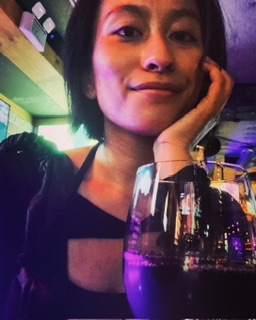
Armed with the vast array of new knowledge that I have gathered during my time in Korea, I know for a fact that I will be living my life much more authentically from this moment on, especially since I have a much better understanding of who I am and my own, personal culture. Because of this, I can easily claim to be one of the cliche people who, though it may appear overly exaggerated at times, can safely say that “study abroad changed my life” and sincerely mean every word of it. During this entire journey of an internship, I truly grew in body, mind, and spirit. I learned so many, different, new lessons on independence, determination, creativity, and the general concept of self from every, single person I met, whether they were American, Korean, Filipino, or otherwise. I have come to experience so much more than ever before and have grown in sincere appreciation for every single aspect of both my own, personal culture and that of the country of South Korea. The increased confidence in myself and the greater appreciation for both myself and for Seoul that I have acquired during this internship experience are absolutely priceless, and I would not trade them for anything else in the world. I will be holding onto and treasuring each and every one of the memories I have made in Korea for the rest of my life, and I can confidently say that my life will never be the same because of them.
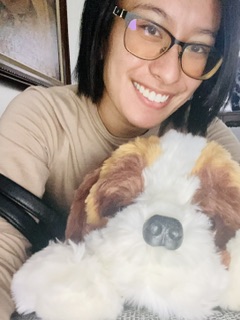
I can also safely say that my world viewpoints — my “cultural lenses” — have been forever affected or “tinted” in the best ways possible by my time abroad. I have learned such a large amount about the elusive and complex concept of culture through both the instruction of my foreign language internship cohort and through unforgettable firsthand experiences, and this new understanding is something I could not have attained anywhere else. In immersing myself fully in my new Seoul lifestyle, I learned a lot about the many similarities and differences between American and Korean culture through personal experience, and I gradually came to realize that culture is much more complicated than what many people originally believe. Culture is not merely a social tool that is cognitively constructed to categorize other people (even though, technically, according to some fields of study, this would be a more correct definition). Rather, I now believe that, while big Cs — or general cultures — may exist, every human being is so much more than just one of these general cultures. Due to the incredible beauty behind the presence of individual differences, it is absolutely key to look at each person as a unique culture in and of themselves and to learn about them as a full person instead of only focusing on one aspect of their little culture — or the smaller cultures that they are a part of and that make up mere bits and pieces of who they are. In other words, while “culture” may initially seem like a big thing, to see the even bigger picture of who an individual truly is, you have to look at them as a unique combination of many cultures or even a custom-chosen culture of their own. If we could learn how to view others in light of this perspective and thus appreciate the complex nature of every person around us, I believe it could easily lead to a more comprehensive understanding of others which, in turn, may overall result in a more loving and open society in the future.
I am honestly rather hesitant to write this as a “final” post, since, even though this is the last post I am technically required to write, I truly think that my Seoul adventure is just the start of a much greater adventure: a journey of self-discovery and true exploration that will last throughout the rest of my life. In fact, as I am writing this, I have started taking a “teaching English as a foreign language” class; I got the idea from foreign English teachers in Korea. This means that, even though one chapter of the story has come to a close, my novel adventures around the globe are only beginning, especially in relation to Korea. I miss Seoul so much, and, honestly, with each passing day I seem to miss it — and every little, unique detail that makes the South Korean lifestyle special — a little bit more (for, as they say “distance makes the heart grow fonder”). However, it is also rather nice to be able to reconnect with my roots after traveling so far for awhile. Having time to reconnect with my family, both in the Philippines and at home in Minnesota, after my time in Korea has only solidified and built upon everything that I have learned so far, and it has helped me to grow in appreciation for each and every one of the cultures that have come together in a unique combination within me; I have come to a much better understanding of how they relate to and interact with each other, both externally, in their perspective cultures, and internally, within myself. I will carry the memories of Korea close to my heart forever, and I believe that, somehow, my relationship with South Korea is only just beginning. After all, there are still so many cultural connections to make and people to meet, and, with my limited time abroad, I was only able to just start establishing a global network. I have a lot of faith that my story is far from over, which is why I will not necessarily say goodbye with this particular post. Rather, I will just end the blog with another genuine note of gratitude for every single person who has in any way supported me or followed me throughout this entire experience as part of the inaugural Foreign Language Internship program and simply sign off with my usual greeting. I really hope to see everyone again very soon, in one way or another, and I look forward to staying in touch somehow! May God bless you all!!!
Sincerely,
Sara Anne
